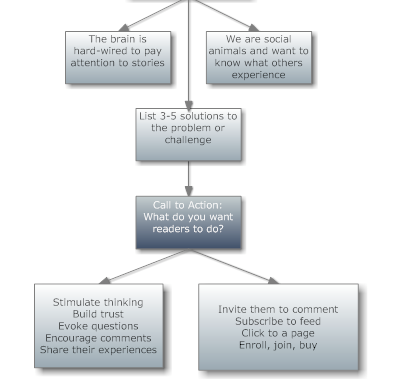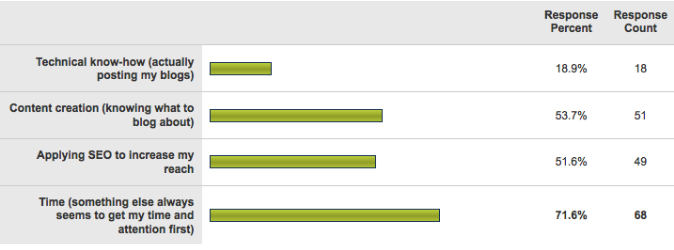 (Guest post by Adam Kosloff)
(Guest post by Adam Kosloff)
You’re swamped.
You barely have time to scan the headlines of your favorite news feeds. Probably the only reason you clicked on this article was to check out whether it might provide instant value to you. Can this article save you time and/or money and/or hassle?
Hopefully, it can. And not because this article will tell you anything you don’t already know – rather, it will remind you of business principles that you already apply in your everyday professional work but which you forgot once you started marketing online.
Here’s the message, loud and clear: 99% of busy business professionals and attorneys should not – repeat, not – waste their precious productive hours writing their own blog posts and website content. If you are guilty of this practice, stop it. You will burn yourself out, and your business will suffer – even if you enjoy doing the writing.
Not convinced? Consider these four arguments.
- You earn the most money – and generate the most productive return on your time – when you stay in your “area of strength. The more time you blog, the less time you will have available to serve your clients. Let’s do the math. Say you’re an attorney who bills out at $250 an hour. Currently, you write three blog posts a week. It takes you about an hour to write each post. $250/hour X 3 hours = $750.This means you are investing a whopping $750 every week into your blog. Are you really getting a return on that investment that justifies this practice?
- You are not a professional blogger.You have been trained as an attorney, corporate executive, or entrepreneur. Even if you consider yourself a master writer and communicator, web writing is its own very cagey animal.Creating ongoing, tonally accurate, riveting web content requires specialized skills that you must hone over years of practice. Undoubtedly, you could learn how to write more effectively for the web. But why bother? Your time and resources are extremely limited. You must husband them for the crucial tasks of operating your core business. Read More→












